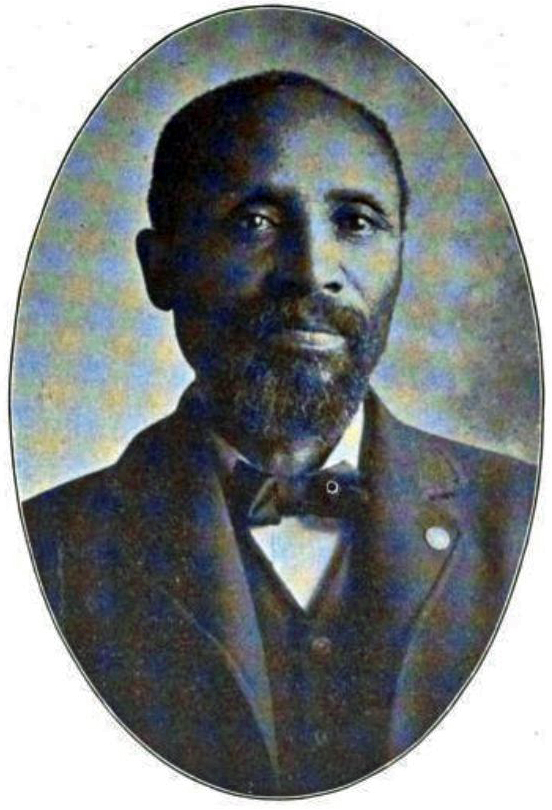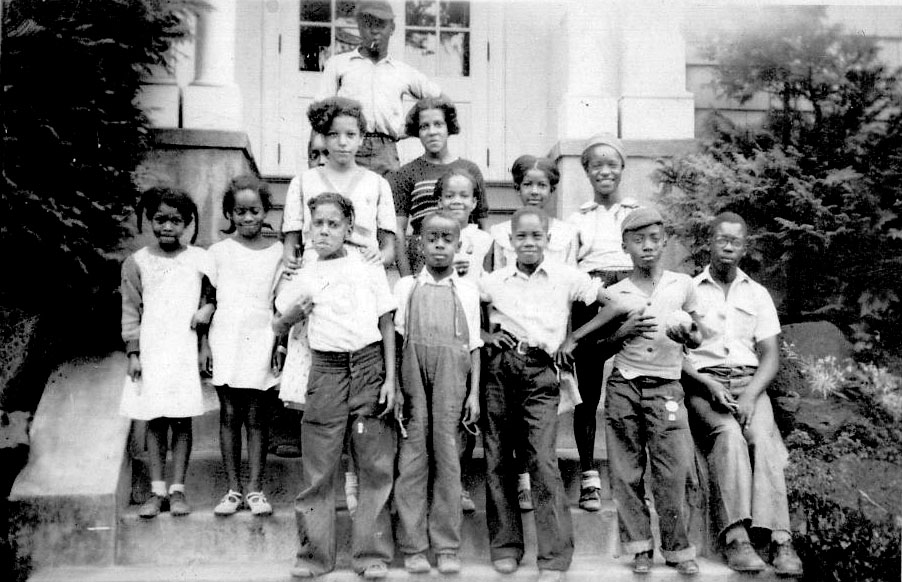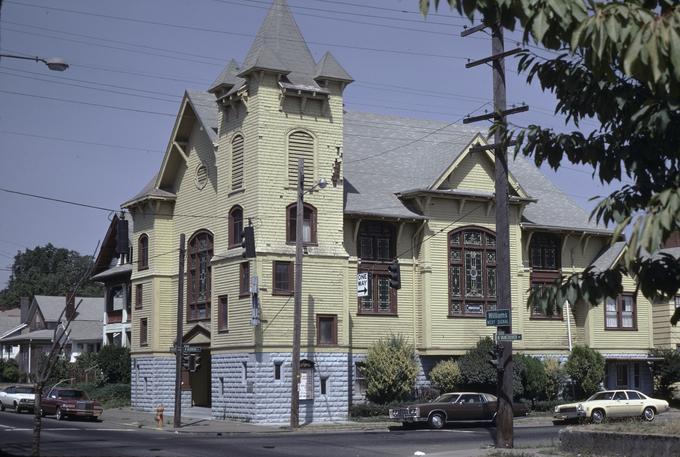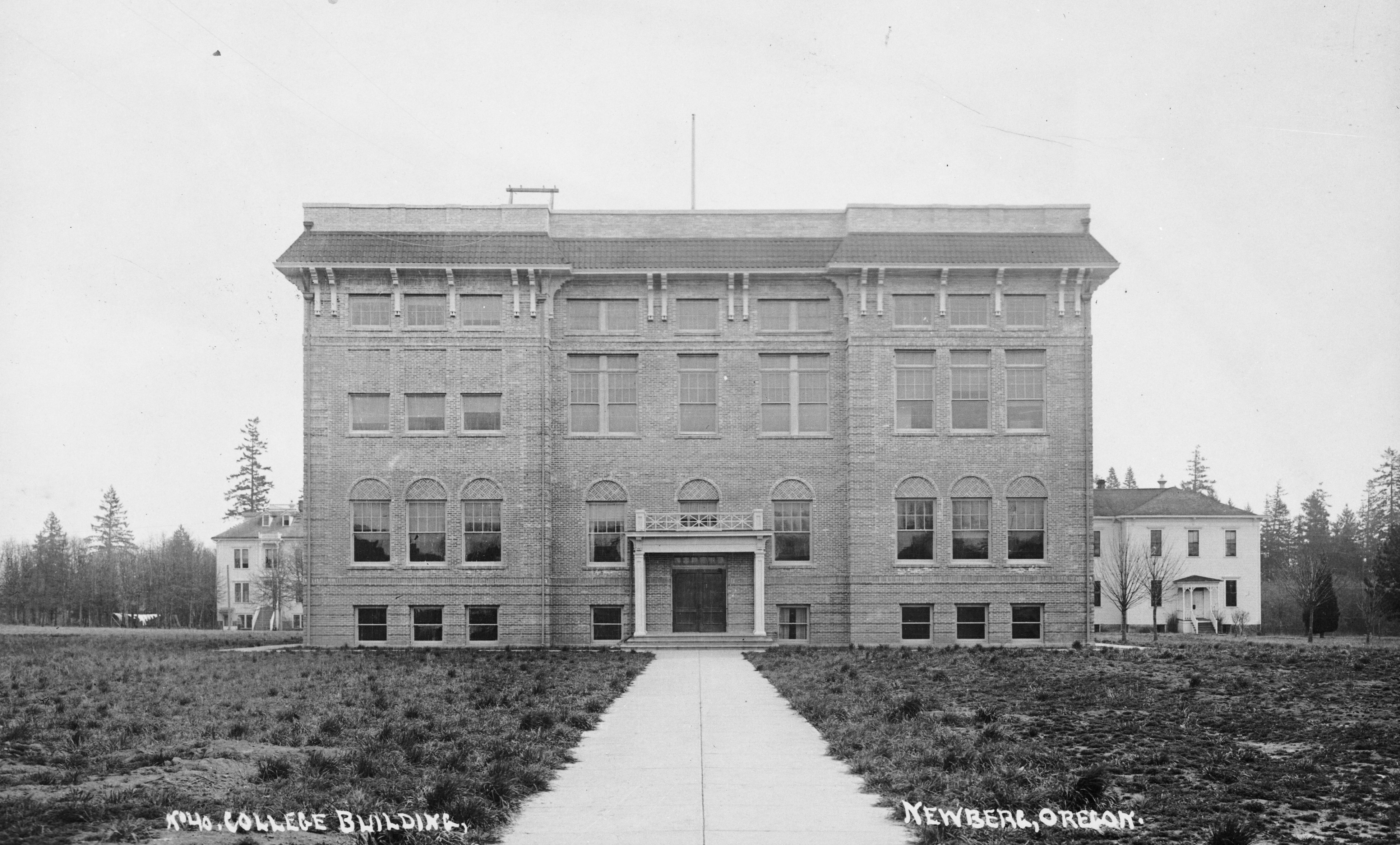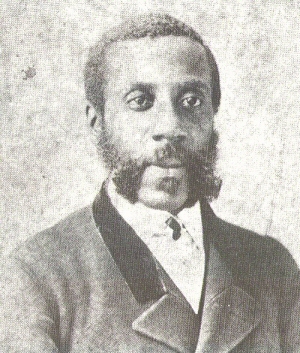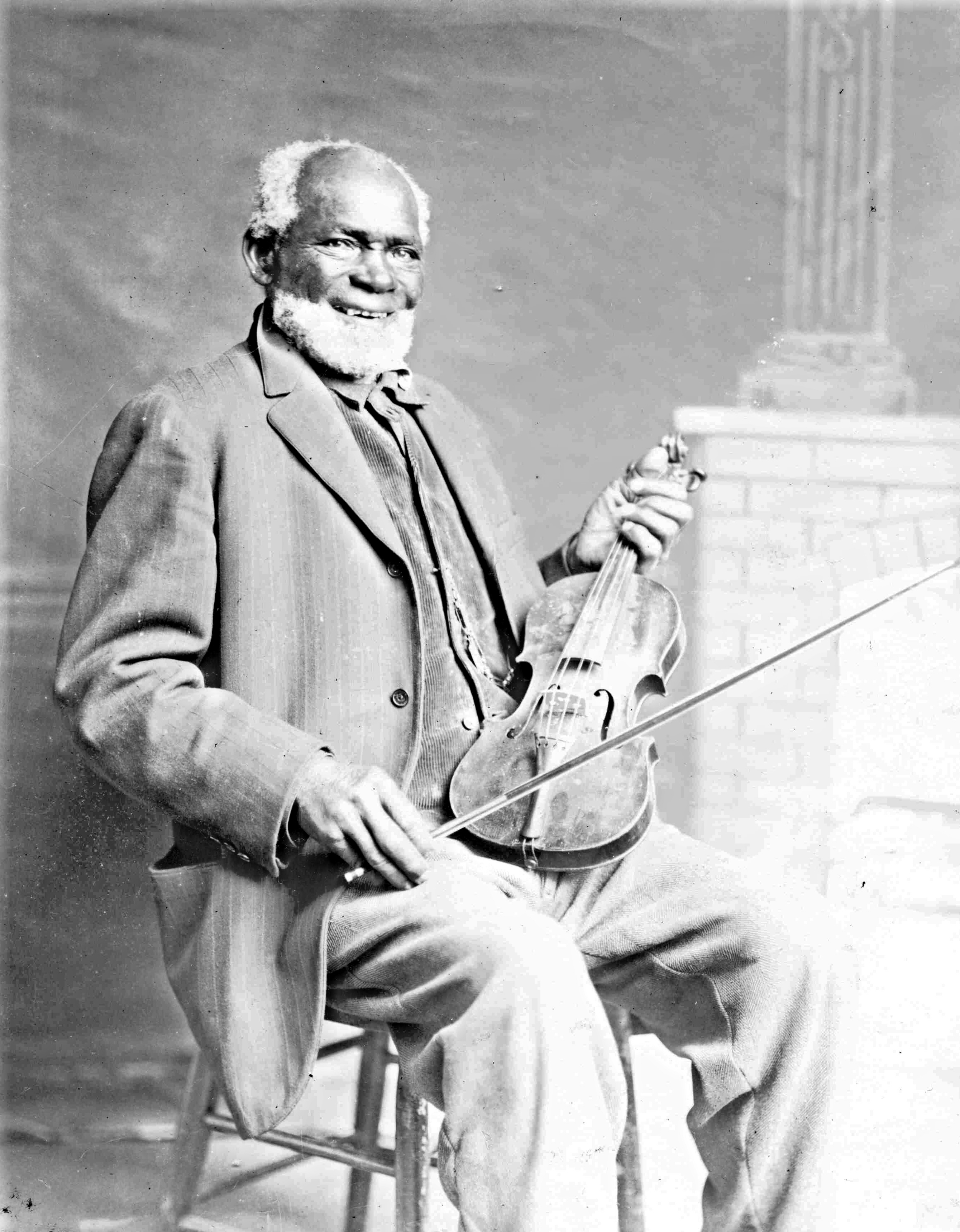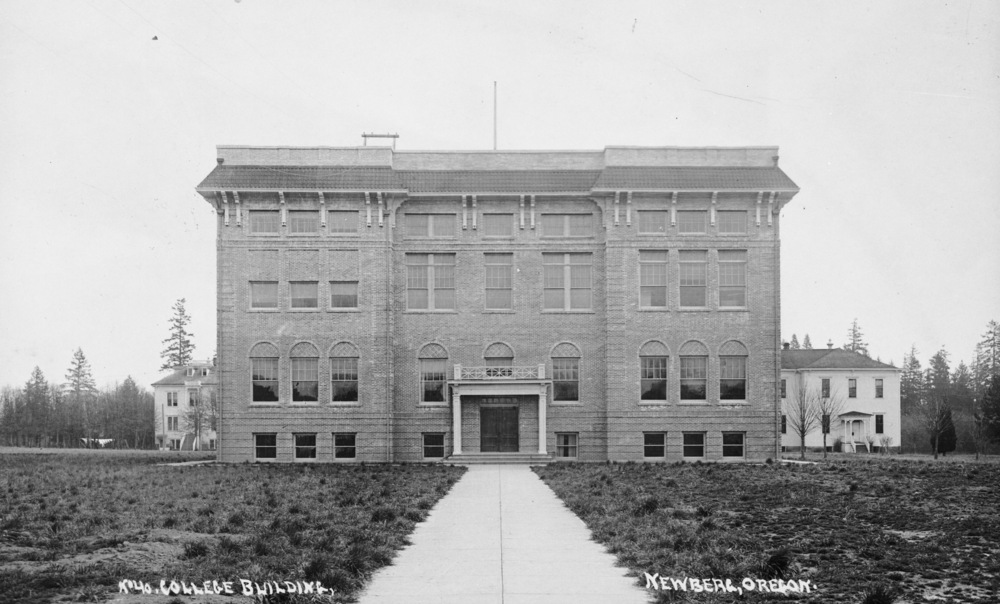Daniel Drew was a civic and religious figure in the Willamette Valley from 1901 until his death in 1923. Throughout Drew’s time in Oregon, only about a quarter of one percent of the state’s population was Black—just over one thousand people when he arrived and two thousand when he died. As a Quaker, Civil War veteran, and formerly enslaved person, he provided a valuable perspective in public speeches to his mostly white audiences in a state with a pervasive history of anti-Black racism.
Drew was born in Clarke County, Virginia, in 1843 or 1845. He said in 1918 that he and his family left Virginia when he was eighteen because “the people that owned us moved to Missouri.” Drew attempted to escape his enslaver, James A. Harris, by running away, “but they caught me and brought me back.” After Harris “chained me to the wall and spent the rest of the day beating me,” he told his father “that the next time the master came near me I would beat him to death with my shackles.” Worried, his father “hurried to a little town close by, where there was a company of Union militia. The Captain came out with a squad of soldiers and made Harris take off my chains and let me go.”
On July 4, 1863, Drew enlisted in the Third Arkansas Infantry–African Descent, which was renamed Company F of the 56th Regiment of the U.S. Colored Infantry. At least one and possibly as many as four of Drew’s brothers also joined. Much of Drew’s service involved working as a musician, including as a drummer. In 1866, outside Helena, Arkansas, the 56th USCI completed its final assignment: building an orphanage for Black children who lost their parents during the war. The orphanage became a boarding school known as Southland Institute or Southland College, which was operated by Alida and Calvin Clark, white missionaries who had been sent from Indiana by the Religious Society of Friends. Throughout the school’s nearly sixty-year history, it was connected to the Southland Monthly Meeting, the local Quaker congregation.
Drew, whose religious upbringing is unknown, joined the Friends and became a leader in the Monthly Meeting, leading worship services and traveling to meet with other Quakers. Alida Clark described him as “a chosen vessel of no ordinary qualifications and talent” who was “always ready with a good word.” In 1870, the Indiana Yearly Meeting added Daniel Drew’s name to the list of Quakers who were gifted speakers. He thus became the first Black Quaker recorded minister in the world. For the rest of his life, he was often referred to as Reverend Drew. Throughout his thirty-five years in Arkansas, Drew worked as a farmer and as a Quaker minister. In 1868, he married Laura A. Thompson, who had been born in Tennessee; their son William was born in 1875.
In 1901, three generations of the Drew family immigrated to Oregon, likely because conditions at Southland had become challenging due to natural disasters, violent racism, and budget shortages. Researcher Henry Cadbury has suggested that the move was prompted by an encounter at the end of the Civil War between Daniel Drew and Albert Dixon, an Oregon Quaker who “was responsible for him coming to the Northwest.” Whatever the circumstances, the swiftness with which Drew assumed a leadership role among Oregon Quakers suggests that an invitation had been extended.
In summer 1901, not long after the family arrived in the Willamette Valley, Drew spoke at the Oregon Yearly Meeting’s summer conference, where he “gave an interesting account of the work of missionaries, especially Friends, among the African Race in the South near the close of the Civil War.” He also conducted devotional exercises and joined a Pacific College (now George Fox University) committee. In 1903, Drew's work was a highlight of the evangelism committee's report, which noted that he had traveled around the Salem area and held twenty-one tent meetings "which were helpful to the work."
From 1904 to 1905, Drew was pastor of the Chehalem Center Monthly Meeting outside Newberg in Yamhill County. A congregational history shows that Drew pastored the meeting, which “took on more life” and “seemed to be a definite step forward under his [Drew’s] leadership.” The Yamhill County census recorded just one Black resident in 1900, and it is likely that all members of that meeting except for the Drews were white. Like other Black Oregonians, Daniel Drew faced isolation, ignorance, and hostility. In 1904, for example, he traveled to Dayton to visit a member of the Quaker meeting he pastored only to be turned away from the local hotel because he was Black.
In 1902, Drew purchased property in southeast Portland on Marguerite Avenue (now Southeast 35th Place), around the corner from the meetinghouse of the Portland Monthly Meeting. He sold that property in 1903 and purchased four properties on Courteney Avenue in North Portland, where several generations of his family would live.
In 1907, Drew joined the African Methodist Episcopal Church. It is unknown why he made that major denominational change. He continued, however, to give speeches and sermons in a variety of secular and faith-based venues. He was a guest preacher at Bethel A.M.E. Church and a speaker at the Colored Women's Council/Colored Men's Progressive League celebration of the fiftieth anniversary of Emancipation. He also spoke at the Central Library, the German American Society, Pacific College, the Sunnyside Congregational Church, and grade schools. Whatever the occasion or the venue, Drew generally shared his recollections of slavery and talked about the importance of honoring fallen soldiers and the collective accomplishments of Black people since Emancipation.
Several of Drew’s appearances were under the auspices of the Grand Army of the Republic, a fraternal organization of veterans who had served the Union during the American Civil War. He had joined the organization in Arkansas and was the chaplain for a Portland GAR branch in the early 1900s. He was also the chaplain for the State of Oregon in 1918, when Oregon hosted the GAR’s national encampment. Drew gave a speech at the conference that recalled how his actions as "a rebellious young fellow" led him to join the army, become a Quaker, and move to Oregon.
Daniel Drew died at the family home in North Portland on March 10, 1923. He is buried in the Historic Columbian Cemetery.
-
![]()
Daniel Drew.
Courtesy Journal of Proceedings of the Thirty-Eighth Annual Encampment of the Department of Oregon, Grand Army of the Republic, 1919.
-
![]()
"Rev. Daniel Drew, an Ex-Slave, Will Lecture Wednesday Evening," Morning Oregonian, Nov. 17, 1902.
Portland Oregonian
-
![]()
"Color Line at Dayton," Morning Oregonian, Feb. 11, 1904.
Portland Oregonian
-
![]()
George Fox College (now University).
Courtesy Oregon Hist. Soc. Research Lib., 005429
-
![]()
Daniel Drew's grave, 2023.
Courtesy Jessica Bucciarelli
Related Entries
-
![Black People in Oregon]()
Black People in Oregon
Periodically, newspaper or magazine articles appear proclaiming amazeme…
-
![First African Methodist Episcopal Zion Church]()
First African Methodist Episcopal Zion Church
First African Methodist Episcopal Zion is Portland's oldest African Ame…
-
![George Fox University]()
George Fox University
George Fox University’s roots reach to 1885 and the founding in what is…
-
![George Putnam Riley (1833–1905)]()
George Putnam Riley (1833–1905)
Identified by the Oregonian as the “Fred[erick] Douglass of Oregon,” Ge…
-
![Louis Southworth (1829–1917)]()
Louis Southworth (1829–1917)
Louis Southworth came to Oregon in 1853, a time that was less than hosp…
-
![Quakers in Oregon]()
Quakers in Oregon
Quakerism as a religious denomination came to Oregon in the 1870s, when…
Related Historical Records
Map This on the Oregon History WayFinder
The Oregon History Wayfinder is an interactive map that identifies significant places, people, and events in Oregon history.
Further Reading
Kennedy, Thomas C. A History of Southland College: The Society of Friends and Black Education in Arkansas. Fayetteville: University of Arkansas Press, 2009.
Kennedy, Thomas C. "The Rise and Decline of a Black Monthly Meeting: Southland, Arkansas, 1864-1925." Arkansas Historical Quarterly 50.2 (Summer 1991).
McLagen, Elizabeth. A Peculiar Paradise: A History of Blacks in Oregon, 1788-1940. Second edition. Corvallis: Oregon State Univ. Press/Oregon Black Pioneers, 2022
Cadbury, Henry. "Negro Membership in the Religious Society of Friends." Journal of Negro History 21.2 (April 1936).

